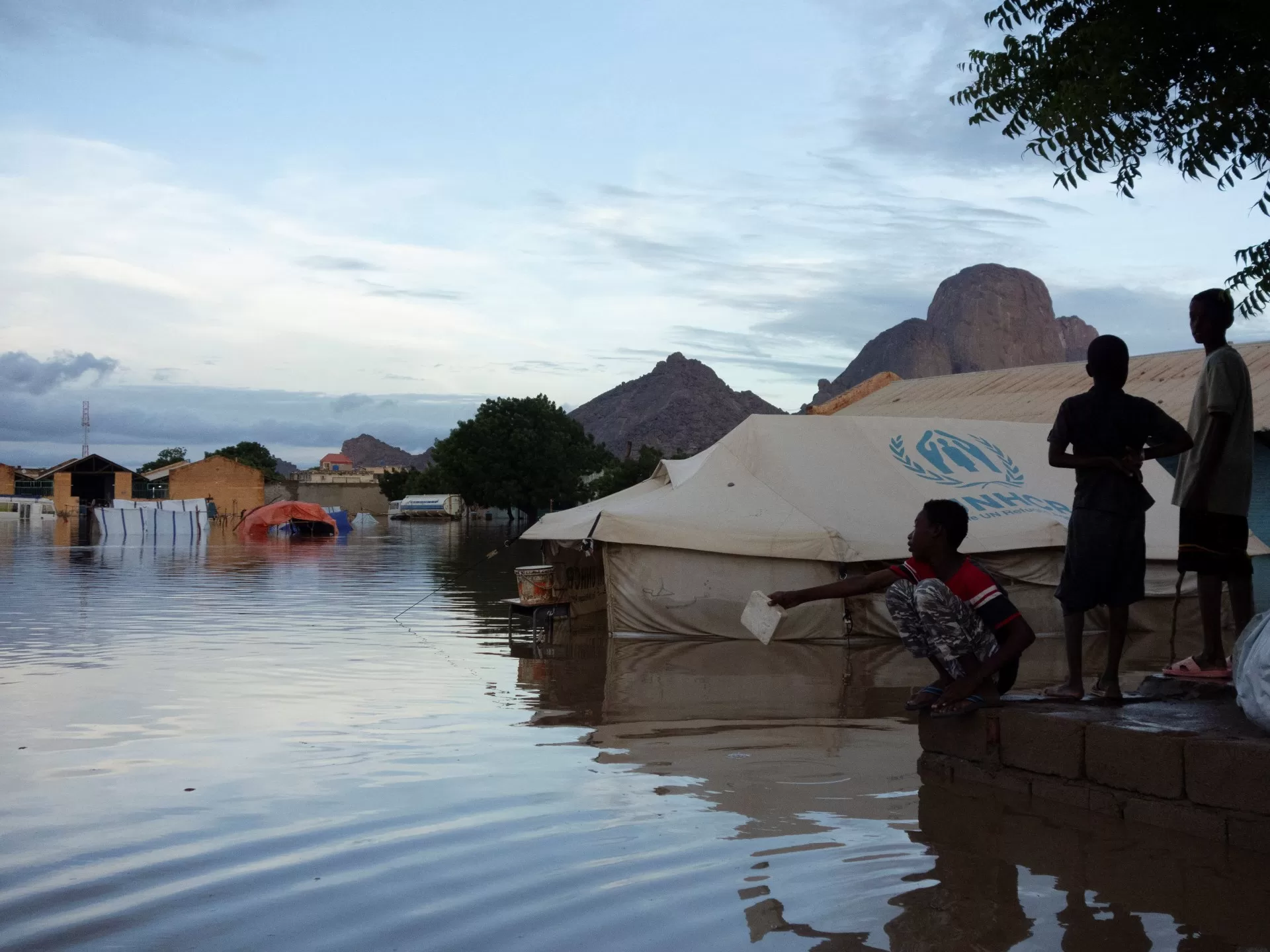Climate hazards helping to double the number of displaced people to 120 million, UNHCR reports.
Climate change is helping to drive a rising refugee crisis, adding to the huge numbers already displaced by conflict, according to a United Nations report.
Three-quarters of the world’s forcibly displaced people live in countries heavily affected by climate hazards, the UN Refugee Agency (UNHCR) said in the document released on Tuesday.
The number of people fleeing conflict doubled to more than 120 million over the past decade, 90 million of them in countries with high-to-extreme exposure to climate-related hazards, it reported.
Half of displaced people are in locations affected by both conflict and serious climate hazards, such as Myanmar, Somalia, Sudan and Syria.
“For the world’s most vulnerable people, climate change is a harsh reality that profoundly affects their lives,” said UN High Commissioner for Refugees Filippo Grandi. “The climate crisis is driving displacement in regions already hosting large numbers of people uprooted by conflict and insecurity, compounding their plight and leaving them with nowhere safe to go.”
About 700,000 people were forced to flee war in Sudan crossing into neighbouring Chad. The country has hosted refugees for years, but is highly exposed to climate change. Those who remain in Sudan are at risk of further displacement due to severe flooding, the report says.
More than 70 percent of refugees from Myanmar have sought safety in Bangladesh, where cyclones and flooding are classified as extreme.
“In our region, where so many people have been displaced for so many years, we see the effects of climate change before our very eyes,” said Grace Dorong, a climate activist and former refugee living in South Sudan.
“I hope the voices of the people in this report help decision-makers to understand that if not addressed, forced displacement – and the multiplying effect of climate change – will get worse. But if they listen to us, we can be part of the solution, too.”
The UN report was released at the COP29 climate meeting in Azerbaijan. Delegates from nearly 200 countries are gathering this week to discuss climate change-related challenges, although larger ones, such as the United States and China, have not sent top-level delegations.
The climate summit opened on Monday amid new warnings that 2024 is on track to break temperature records, adding urgency to a fractious debate over climate funding as poorer countries seek an increase in the $100bn-a-year target at the forum.
In an interview with Al Jazeera, Damilola Ogunbiyi, UN special representative on sustainable energy, said one of her “key expectations is on the role of climate finance”.
“We have a record-breaking year of investments in clean renewable energy. However, only 15 percent of that goes to the Global South,” she said.
The recent election of Donald Trump as the US president has added a sense of renewed urgency to the event. Trump has repeatedly threatened to pull the US out of the landmark Paris Agreement to limit global warming.
